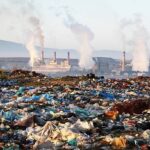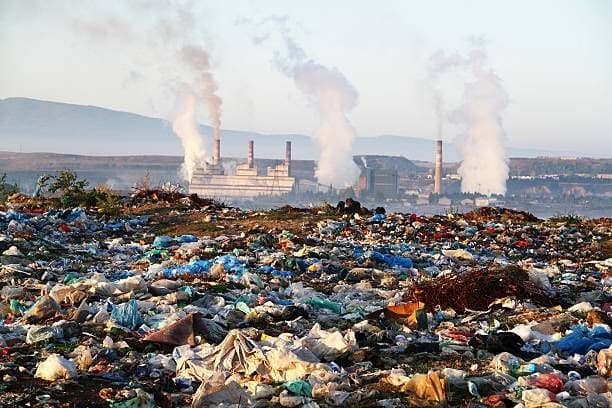Environmental pollution is an issue that has plagued Nigeria for some time. The issue has significantly affected the health of its citizens and the sustainability of the country’s natural resources. To address this matter, the Nigerian government should adopt a comprehensive approach that involves stringent environmental policies.
In this post, we will explore various ways the government can combat environmental pollution.
Table of Contents
Understanding Environmental Pollution in Nigeria
Environmental pollution occurs through air, water, and soil. Urbanization of local towns, industrial activities, and poor waste management practices have all contributed to the sorry state we see the country in today.
The negative impacts have led to certain health issues, loss of biodiversity, and even adverse economic effects. Let’s take a quick look at some forms of pollution:
-
Air pollution
Air pollution is majorly caused by vehicles, industrial discharges, and the use of generators. The high level of pollutants such as carbon dioxide in the air poses risks to respiratory diseases and cardiovascular problems.
-
Water pollution
Water bodies in Nigeria suffer from contamination mainly due to industrial effluents, oil spills, and improper waste disposal. This pollution not only affects marine life but also poses dangerous risks to communities that rely on these water sources for drinking, fishing, and farming.
Don’t you think it’s prime time to connect with passionate readers and writers like you? Join our WhatsApp community today; you’ll be glad you did.
-
Soil pollution
The excessive use of pesticides, oil spills, and industrial wastes, erodes the quality of agricultural land. This issue has led to poor crop yield and food insecurity.
Ways to Implement Effective Environmental Policies
To combat the environmental pollution of the nation, the government should enforce robust yet strict policies. These policies should reduce environmental pollutants at their sources and promote sustainable practices.
-
Strengthen regulatory framework
One of the fastest and effective ways to combat environmental pollution is for the government to strengthen the already existing framework with its policies. They should enhance the enforcement of environmental policies and regulations by handing out strict penalties to organizations and individuals who violate pollution standards.
-
Promote sustainable industrial practices
Another way to reduce environmental pollutants is to encourage industries to adopt cleaner production and waste disposal techniques. The government may offer incentives such as tax reliefs or subsidies for companies that invest in green technology and sustainable practices.
-
Improve waste management system
Effective waste management is crucial in battling environmental pollution. The government should direct resources to investing in modern waste management infrastructure such as recycling facilities and waste-to-energy plants to encourage sustainable living.
They may also organize public awareness campaigns about proper waste disposal practices and the role it plays in environmental protection.
-
Encourage renewable energy
By promoting renewable energy sources such as wind, solar, and hydroelectric power, the government reduces our dependence on fuel, leading to reduced environmental pollution. They can encourage people to adopt these forms of energy by offering incentives or grants for renewable energy projects.
-
Strengthen environmental education
The government should integrate environmental education into the school curriculum of all private and public schools. They should conduct regular awareness campaigns to boost the sense of environmental stewardship in citizens.
By educating the people about the importance of keeping the environment clean, they produce more informed and responsible citizens who can join the fight against pollution.
Targeting Specific Environmental Pollutants
Different pollutants will require different strategies to effectively dampen their impacts. Thus, the Nigerian government should prioritize actions based on the severity and prevalence of these pollutants.
-
Vehicular emissions
To reduce vehicular emissions, the government should invest in its public transportation systems such as Bus Rapid Transit (BRTs). They can also create safe cycling lanes and pedestrian pathways to encourage transport options that are not motorized, further decreasing air pollution.
-
Industrial discharges
Government may enforce stringent regulations that require industries to install pollution control equipment. They should monitor these industries to ensure compliance and issue penalties for non-compliance.
By promoting cleaner production technologies and offering incentives for maintaining eco-friendly practices, industries can mitigate industrial pollution.
-
Agricultural pollution
Agricultural pollution can be combated by regulating the use of chemicals such as pesticides and fertilizers. Rather, organic farming methods should be encouraged. The government can train farmers on soil conservation techniques and even implement buffer zones near water bodies to reduce pollution through agricultural activities.
-
Wastewater
Managing wastewater involves the government investing in modern wastewater treatment facilities. They need to monitor the ways wastewater is disposed of and prevent untreated effluents from entering water bodies.
By upgrading existing infrastructure, the government can encourage industries to adopt water recycling and reuse practices.
-
Solid wastes
Effectively managing solid waste requires the government to develop comprehensive recycling programs and kickstart waste-to-energy projects. By investing in modern waste collection and processing facilities, as well as enforcing policies, and organizing awareness campaigns that promote recycling and proper waste disposal, the government can effectively reduce solid waste.
-
Oil spill
The government should establish rapid response teams and invest in oil spill containment and cleanup technologies. They should also strictly enforce all regulations on oil drilling and transportation. Organizations involved in the oil industry should be regularly inspected to ensure compliance.
Combating Environmental Pollution Through Collaboration
It is also important to mention that environmental protection schemes require collaboration between the government, private sector, and civil society. By joining forces, these parties can develop innovative and sustainable solutions.
-
Public-private partnerships (PPPs)
The government should foster such partnerships to tackle pollution. PPPs are capable of pooling resources and expertise from the private sector to implement large-scale projects.
-
Community engagement and education
Engaging communities and educating them on the ways pollutants negatively impact their environment is vital in emphasizing the effects of environmental pollution. With the help of NGOs and community leaders, the government can organize seminars that raise awareness and encourage the participation of pollution control.
Would you like to get first-hand updates about our recent posts? Kindly subscribe to our newsletter today and let’s keep you posted.
Conclusion
To combat environmental pollution, the government should adopt methods that encompass stringent environmental policies, sustainable practices, and active collaboration with stakeholders. By doing this, they can effectively address the environmental needs of the nation and safeguard the health and overall well-being of its citizens.
Through collective efforts, Nigerians can achieve a cleaner and healthier environment for future generations.
Edited by Priscilla Ajayi.
About Author

- Rosemary Inok is an experienced ghostwriter with over two years in the field, producing more than 100 pieces of content. She particularly enjoys writing flash fiction, bringing a passion for storytelling to every project.
Latest entries





